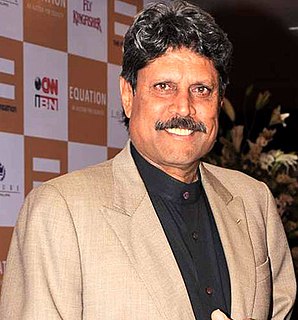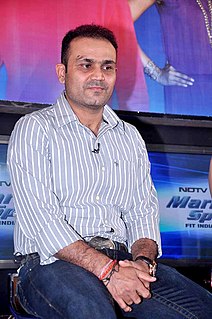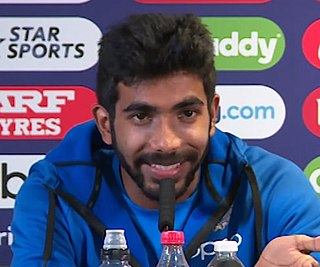A Quote by Kapil Dev
If you are playing on a turning wicket, toss plays an important role. The team that wins the toss gets an opportunity to play on the fresh wicket. You should always prepare the wicket as per team's strength. But a rank turner might backfire.
































